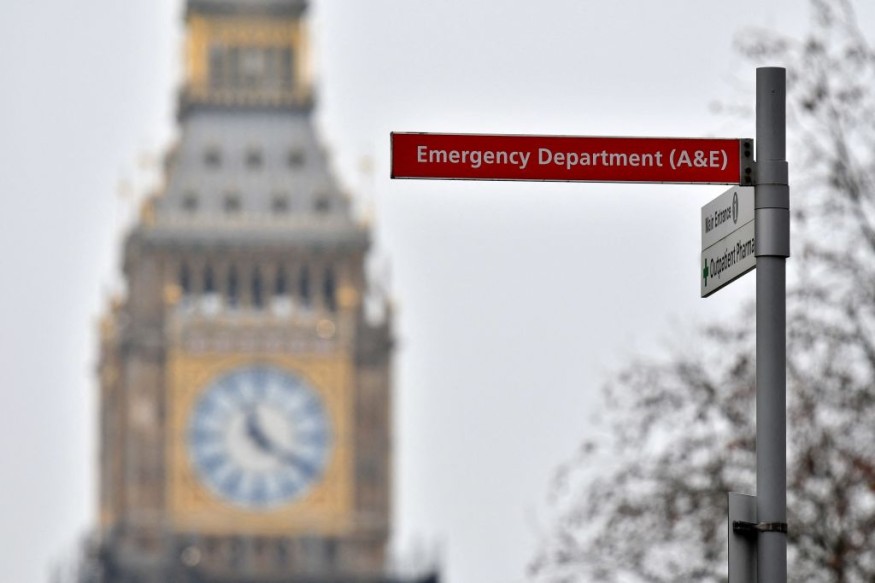
The end of the second year of the COVID-19 pandemic is fast approaching, but many people claim that they have not experienced time moving as fast as the pre-pandemic times. Recent studies showed that periods of stress that cause disruptions in routines for over two years resulted in distortions of how people perceive time.
The high number of people reporting experiencing this phenomenon correlates with the well-documented rise of psychological distress during the pandemic, such as depression, loneliness, stress, and "The Big Quit," in which employees have voluntarily resigned from their jobs without having another one lined up. But scientists said that there are ways to take back the control of time perception during this stressful time.
A sign for the Emergency Department (A&E) of St Thomas' hospital is pictured in central London on December 23, 2021, backdropped by the Elizabeth Tower, commonly known by the name of the bell Big Ben, at the Palace of Westminster, home to the Houses of Parliament.
Physical Distancing Affected People's Perception of Time
Researchers at Liverpool John Moores University in the UK conducted a survey in 2020 and found that physical distancing during the pandemic has distorted the perception of time in many people. Survey lead author Ruth S. Ogden told Healthline that the research confirmed that some felt the time during the pandemic was passing too slowly even though it was not.
They conducted the survey on 604 participants in the UK and had them rate how fast they felt the time was passing during the pandemic and pre-pandemic times. Also, the participants were asked about their emotional state, feelings, task load, and social interaction during this time.
Ogden and her team found that 20% of the participants experienced the time passing similarly as before the pandemic, while 40% said that it is slower than the past, and another 40% said it is faster now.
The team noted that most of the participants who reported that time is passing slowly are those 65 and up and have low levels of satisfaction with current levels of social interaction due to health protocols in place. On the other hand, being young, busy, and socially satisfied during the pandemic has made some participants feel as if the days are passing quickly.
The principal investigator of the study, Dr. Michael N. Shadien from Columbia University's Zuckerman Institute, said that the findings correlate with the concepts of time perception in neuroscience.
ALSO READ: Mental Health: Depression and Anxiety Overwhelm Students During the Coronavirus Pandemic
Memories of Intense Feelings Make Time Appear to Pass Slowly
Periods of stress, joy, disruptions, and adventures may result in the subjective feeling of distorted time perception, Psychology Today reported. The association between feeling and perception may depend on bodily arousal and memory, in which this kind of event can cause negative or unpleasant bodily arousal that releases elevated levels of chemicals.
Events that induce arousal tend to create more memories in what is known as temporal markers that break up the monotone stream of experiences that are stored in one's memory. Dividing the long and undifferentiated stream of events into memorable moments will make temporal makers slow down the rate at which the brain replays the narrative content of the memories.
It serves as speed bumps on how people remember memories, and consequently will remember a time as passing more slowly when they look back at past events, such as those stressful, joyful, disruptive, and adventurous periods of their lives,
But when people become more familiar with a new kind of routine, the events in the stressful period become less arousing and, therefore, less likely to lay down temporal markers. The fewer there are, the more general and lacking the details of the content of the memory ad the memory that will be remembered will be the time when it seemed to create more impact.
So, those who tend to view the pandemic as a very stressful and traumatic time will also be more likely to remember the time of the pandemic as passing more slowly.
RELATED ARTICLE: How to Process Psychological Trauma From the Pandemic Experience? COVID-19 Leaves Long-Term Mental Health Effects
Check out more news and information on Mental Health and COVID-19 in Science Times.











